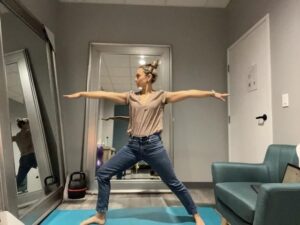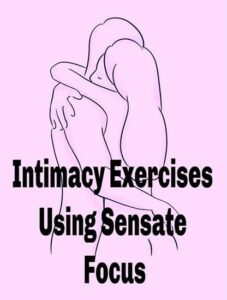
What Are The Benefits of Stretching Daily?
What are the benefits of stretching daily? Why should it be part of our daily routine? Can you recommend a good video for daily stretching?

The Benefits of Yoga for Urinary Incontinence
Yoga for Urinary Incontinence is a Thing By Kasia Gondek PT, DPT, CSCS, certification in Yoga for Pelvic Pain through the Herman and Wallace Pelvic

Can Mindfulness Help With Painful Sex? Part 1
Mindfulness Is More Than A Mindset From bullet journals to hot yoga, and five minute breathing exercises to weekend meditation retreats, mindfulness is the hashtag-goals

Mindfulness Can Improve Your Sex Life – Part 2
Studies have shown that mindfulness can improve your sex life by increasing arousal, reducing sexual pain, lowering judgement, improving relationship satisfaction, and improving self esteem.

Studies Show Mindfulness Can Help You Start and Stick with an Exercise Program
Physical Activity has Psychological and Physical Benefits Studies have shown that physical activity has many physical and psychological benefits. Staying physically active can increase happiness

Did You Know There’s More Than Just Sex? Sensate Focus Can Help
How much do we really learn about intimacy, affection, sensual touching and sex while growing up? A lot of our references for intimacy come from

Ways to Keep Calm | Using Mindfulness Meditation in Times of Global Stress
As many places in the United States and around the globe are beginning to navigate new realities and daily routines in light of COVID-19, there

